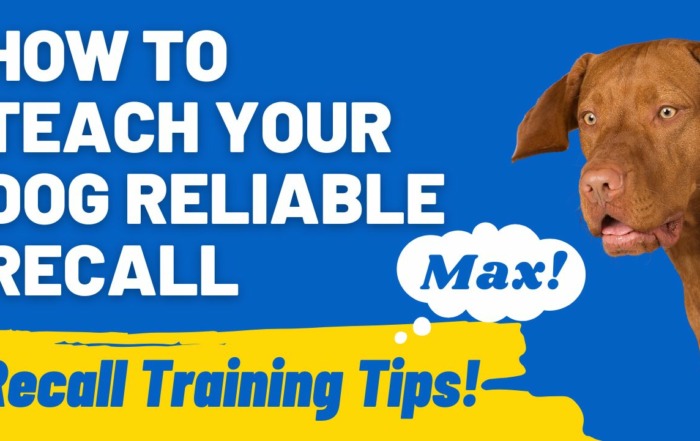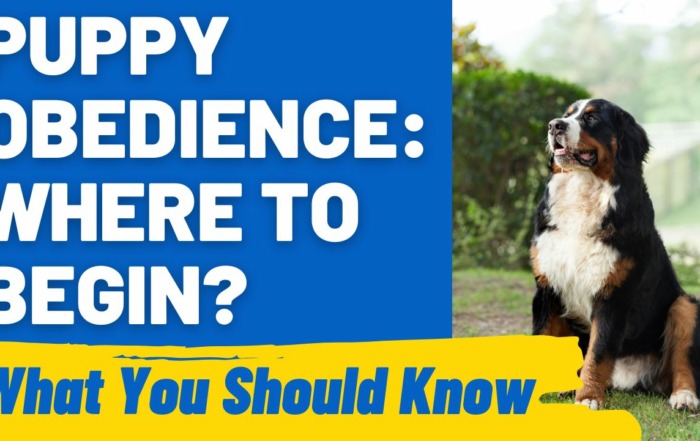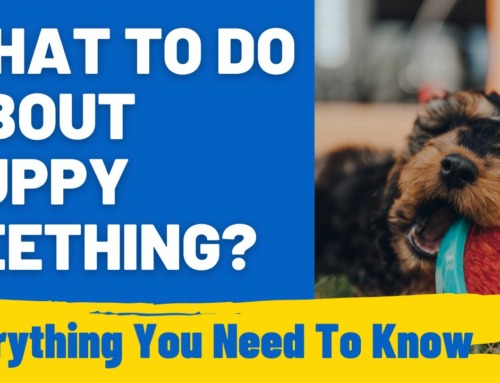Does your new puppy have soft stool or even diarrhea? This may be normal, but there are many issues that are seen in puppies that would cause them to have soft stool. Monitoring your puppy’s poop may be a gross task, but it is something that you can do to easily tell if your puppy is healthy or not. Any sudden change in consistency or amount of stool should alarm you to see your vet.
How long does a puppy’s poop stay soft?
Once your puppy is weaned, their stool should start to firm up. You will notice that they start to have small formed segments of poop. If you notice that their stool is soft again, there may be something wrong with them, and they may need to see their vet.
Reasons that your puppy’s poop may be soft
Your puppy’s stool may be soft for many different reasons. If you notice that your puppy has soft stool, it would be best to investigate using this list:
- Diet changes: If you have suddenly changed your puppy’s food from one type to another, this may be the reason that their stool is soft. When changing diets, it is always best to do so gradually. Usually, the breeder will send you home with a small amount of the food that your puppy is currently eating so you can gradually change them to the diet you want them to eat.
Follow this chart when transferring your puppy to a new diet:
| Day | Old Food | New Food |
|---|---|---|
| 1-2 | 90% | 10% |
| 3-4 | 80% | 20% |
| 5-6 | 70% | 30% |
| 7-8 | 60% | 40% |
| 9-10 | 50% | 50% |
| 11-12 | 40% | 60% |
| 12-14 | 30% | 70% |
| 15-16 | 20% | 80% |
| 17-18 | 10% | 90% |
| 19-20 | – | 100% |
- Dietary indiscretion: This is anything that your dog eats that is not food. Puppies are known for chewing on shoes, eating poop, or eating random things that they find outside. All of these can cause your puppy to have soft stool. When your puppy is outside, make sure that there’s nothing that they are getting into that would cause them to have diarrhea.
- Excitement: After your puppy has a period of excitement such as playtime, public outings, or visiting a friend, they may have diarrhea. You might notice that your puppy has soft stool or a change in stool shortly after a stressful or exciting event. This may happen even once they become an adult. This is a perfectly normal change that will quickly clear up after a day.
- Sensitive stomachs: Some puppies will struggle to digest certain brands of food. This can be caused by many reasons, including ingredients used, manufacturing processes, or even what the food is stored in. The amount your feeding your puppy can also cause soft poops. We recommend owners try a fresh food service for their puppies if they’re struggling with diet-related poop issues. You can read more about one such service in our post PetPlate: Should You Use It?
- Vaccines or vet visits: After your puppy visits a vet, they may have a small amount of diarrhea. The stress of going to a new place can trigger this. Also, vets take rectal temperatures, which may stimulate your puppy to want to poop shortly after.
Are you interested in reading our post, Dog Drinking Water and Vomiting? Here’s Why…
- Parasites: Parasites can commonly cause your puppy to have diarrhea. You may even notice a little bit of blood in their stool. Parasites will attach to your dog’s intestines, causing them to have diarrhea and sometimes even vomiting. Your vet can check a fecal sample to see if your puppy has worms and start them on a de-wormer.
- Parvovirus: Parvo can be a deadly virus that is seen in unvaccinated puppies. These puppies are very lethargic, have bloody diarrhea, vomiting, and not eating. If your puppy is ever displaying these symptoms, they need to see your vet right away. The earlier that you start treatment, the quicker your puppy returns to normal, and the better the outcome.
If your puppy has diarrhea or the soft stool, along with any behavior that indicates any discomfort, like excessive panting, reluctance to walk with you, refusing to eat food or treats, please contact your vet.
This could be an issue where your vet needs to examine your puppy to make sure that there is nothing wrong.
If your pup is also doing their soft poops inside, then you will definitely need an odor eliminator! Your dog can smell it even if you can’t and so will be more likely to keep pooping inside. We recommend Live Odor Free to remove dog odors from accidents.
You might also like to read our post, Dog is Pooping Jelly: (What To Do).
And in this post we tell you the best way to clean up dog poop, Can You Put Lime on Dog Poop? (Answered).
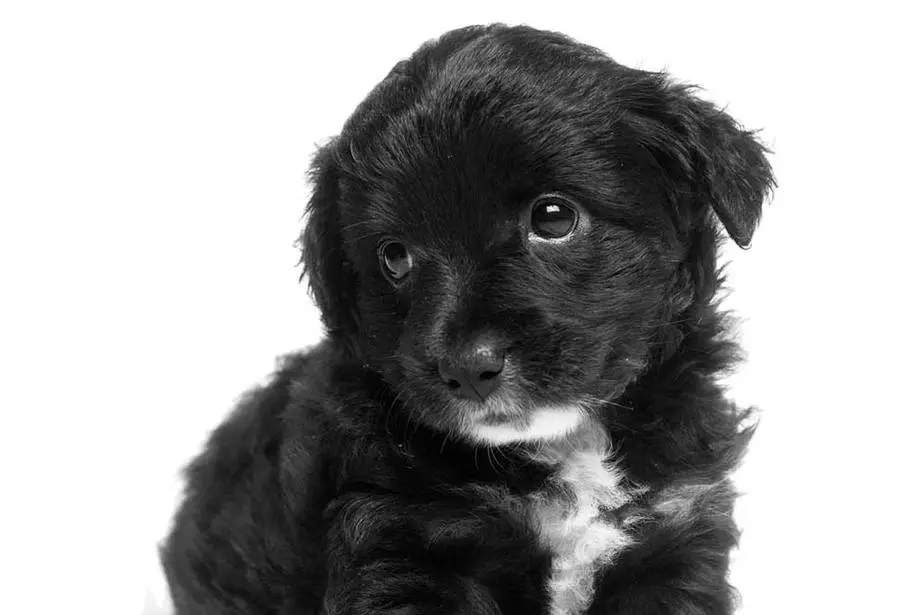
My Puppies stool is soft but not diarrhea. Is this normal?
Soft stool can be normal even in healthy puppies. But if your puppy normally has a firmer stool and then starts having soft stool, monitor your puppy for any change for the next 24 hours. If your puppy’s soft stool continues to stay soft for more than 24 hours or becomes diarrhea, it would be best to contact your vet.
Picking up puppy diarrhea can be a pain, especially on surfaces like grass, cement, or carpet. We’ve actually written a post on the best way to clean up runny dog poop – yes, I know – but here it is if you’re interested: Picking up Dog Diarrhea.
My puppy’s stool starts out normal and then has diarrhea at the end. Is this normal?
Some puppy’s stool will start off normal, and then toward the end, they may have a little bit of diarrhea. This can also be very normal.
Many times, this will happen after you take your puppy for a long walk. Walking can stimulate your puppy’s intestines to need to poop. At first, this stool will be normal and formed, but towards the end may be a little soft.
Having soft poop can also cause impacted anal glands, so be sure to read more about that here in our post Dog Has a Smelly Bum: Why and What to do
What is the side effect of my puppy having soft stool?
If your puppy continues to have soft or runny stool, they can become dehydrated. When your puppy eats, the food and water moves through their intestines and into their colon, where water is absorbed back into the body to keep your puppy adequately hydrated.
Even if your puppy is drinking water, they can still become dehydrated. There are many easy things that you can check at home to tell if your puppy is dehydrated.
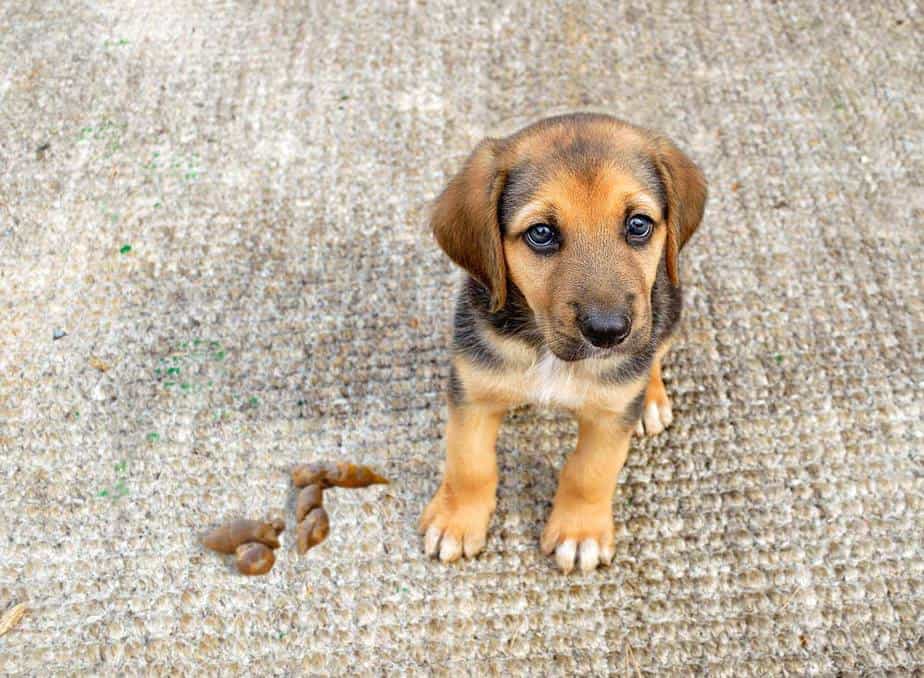
Hydration Tests
Skin pinch test: To do this test, gently pull the skin between the shoulders of your puppy up away from their body. Normally, their skin should immediately return to normal its position. If your puppy is dehydrated, when you pull the skin up, the skin will not return to a normal position immediately.
Gums examination: You can examine your dog’s gums also to help determine if they are dehydrated. A normal puppy’s gums will be moist and a healthy pink color. If your puppy is dehydrated, they will have tacky or pale gums.
If you think that your puppy is dehydrated, please contact your vet. Many times, these puppies will need fluids to help them become rehydrated again.
What can I do at home for my puppy’s soft stool?
If your puppy has soft stool, there are a few things that you can do at home to help your puppy’s stool return to normal.
Figure out what is causing their diarrhea: Try to see if you can figure out what is causing these issues. If you suddenly changed their food or they have been eating things that they should not be eating, try to change their food very gradually and prevent them from eating things that they shouldn’t.
Feed them a bland diet: If your puppy has diarrhea, feeding them a bland diet of boiled chicken and rice with no added seasonings or oils can help your puppy’s stool return to normal. The chicken and rice diet are very bland and easy for your puppy to digest.
If you feed you puppy this diet for a few days, their stools will start to return to normal, and then you can gradually transition them back to their normal dog food.
Give them Probiotics: Many times, the good bacteria that live in your puppy’s intestines are dead. By giving them probiotics, you are replacing these beneficial intestinal bacteria.
Take them to your vet: If your puppy is ever not feeling well or they’re lethargic, it is best for them to see your vet. Vomiting or bloody diarrhea for more than a few hours should see a vet right away. Young puppies can very quickly get very sick.
Final Thoughts
While your puppy may have soft stool for just a few weeks after they are born, their stool should quickly start to be formed.
If they even have soft stool or diarrhea, you need to start investigating to figure out what is causes these issues.
The quicker you can find out why your dog has soft stool, the quicker you can get their intestines back on the right track.
Recall Training Secrets: How to Teach Your Dog Reliable Recall
Teaching a dog recall is not just a basic obedience skill; it's a vital aspect of ensuring the safety and freedom of your beloved pet. Picture this: your dog is playfully chasing after a squirrel [...]
The Joy of Petting: How to Approach Dogs the Right Way
"Can I pet that dog?" is often the first thought that pops into our minds when we see a furry friend wagging its tail. The joy of petting a dog is unmatched, offering both the [...]
Puppy Obedience: Where to Begin? An Introductory Guide
Puppy obedience is more than just teaching commands. It's about nurturing a relationship based on mutual respect and understanding. It lays the foundation for a well-behaved adult dog and ensures a harmonious life together. In [...]
Understanding Canine Autism: Do Dogs Experience It?
Have you ever wondered, can dogs have autism? Autism, a complex condition often characterized by social and communication difficulties, is widely recognized in humans. But when it comes to our canine companions, the idea of [...]


